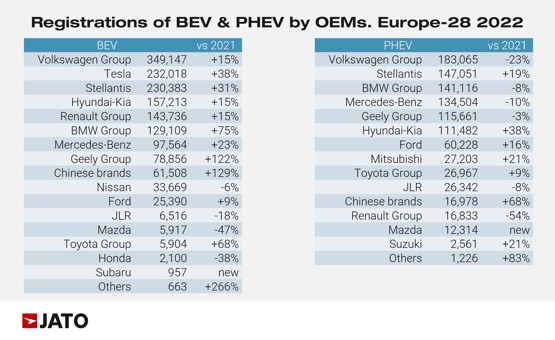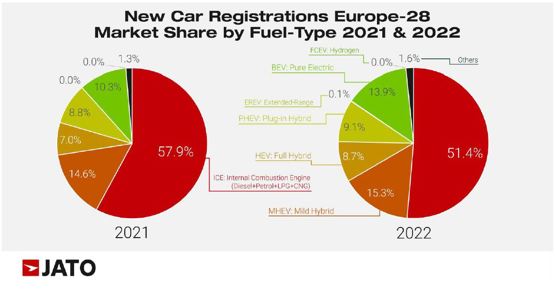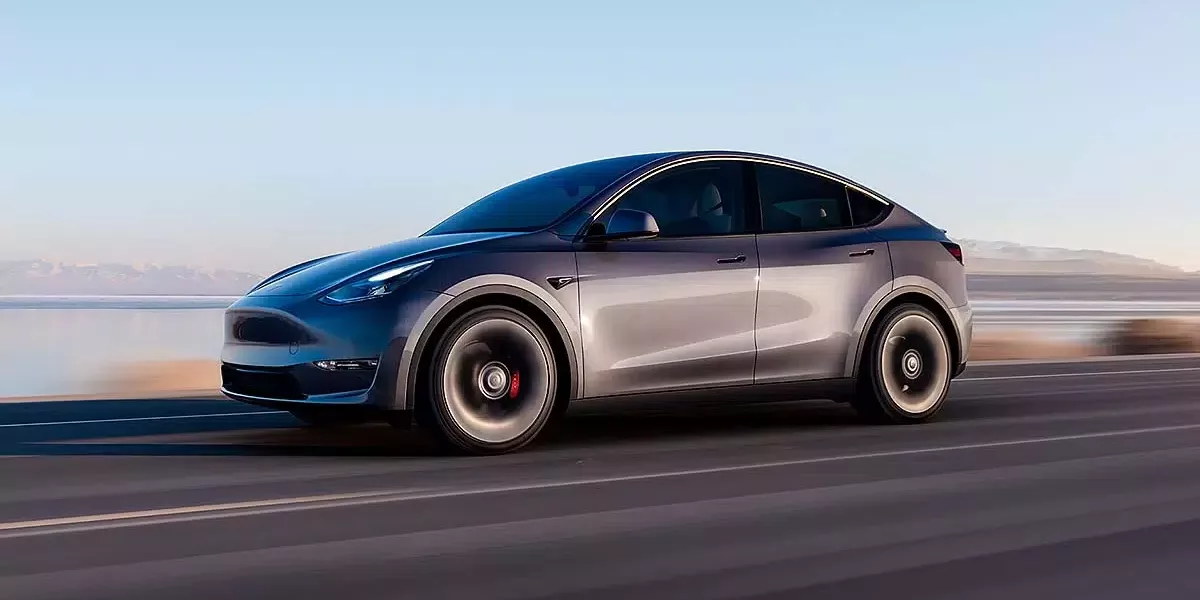Tesla tops slowing EVs
New car sales increase but EVs feel the economic pressures
Are electric vehicle (EV) sales on the slide? That’s the question being raised as the latest Society of Motor Manufacturers and Traders (SMMT) stats reveal a drop in the proportion of EVs being bought despite a rise in vehicle sales.
Over the last few years, the government has continued to reduce its financial support grants for customers buying into the zero emissions future on the roads. According to some, the result is clear; less sales. However, others market watchers believe that the cut in grants will force manufacturers to reduce new EV prices of their own accordingly. This began almost immediately when the government grants were reduced. With competition rising and many new models launched, the price drops are continuing.
EV sales slow
Ian Plummer, Commercial Director at Auto Trader commented on the figures and believes the latest official figures will only add to the price cutting momentum. These, combined with less spending due to the economic crisis, and the pressure is increasing on manufacturers and dealerships to attract new buyers.
“Six consecutive months of year-on-year sales growth is a reassuring sign for the industry,” states Plummer.
“However, the dip in electric car sales reveals that December’s record performance – when one in three new cars sold in the UK was electric – was artificially inflated due to Tesla’s huge quarterly vehicle delivery and the impact of annual manufacturer emissions targets rather than reflecting genuine consumer appetite at that level.
“On our marketplace, demand for new electric vehicles (EVs) is at a three-year low. In the summer of last year, EVs accounted for nearly 30% of all new car enquiries being sent to retailers. By November, as electricity prices began to rocket, it had fallen to fewer than one in five, and today its fewer than one in 10 as energy prices have risen and some negative commentary have dampened demand.
“In the absence of government support, manufacturers will likely be forced to move on pricing to stimulate consumer demand, which we’re already beginning to see with the likes of Tesla announcing significant price reductions on key models. And it’s working. Following Tesla’s news, we saw an immediate 113% spike in Model 3 page views on our marketplace.”
Tesla plugs the gap
The Tesla Model Y is the most popular electric vehicle (EV) in Europe.
Figures from Jato Dynamics reveal that Tesla sold 137,052 Model Ys in Europe in 2022. This is a significant lead over rival vehicles.
Second best-selling EV was the Tesla Model 3, with 91,475 registrations.
However, Tesla’s combined performance was not enough to secure it as the leading EV manufacturer. Volkswagen Group took that crown as the best-performing brand by volume – 349,200 EVs registered across Europe in 2022.

Volkswagen’s ID4 took third place, achieving 67,590 registrations, with sales up 23%. This came at the expense of the ID3 which took fifth place having achieved 53,015 registrations.
In the plug-in hybrid market, the Ford Kuga remained the best-selling model, followed by the BMW 330e and then the Volvo XC40.
EVs continue to drive forward
In 2022, registrations of electrified vehicles in Europe reached a new record with a total of 2.59 million units. Year-on-year, volume increased by 15%, and by 92% when compared with 2020.
In 2019 – before the Covid-19 pandemic hit European markets – registrations totalled 561,000 units.
EV market share has grown from 3.6% to 23% last year – a volume increase of 362%.
EVs in 2022 accounted for 13.9% of all new car registrations.








